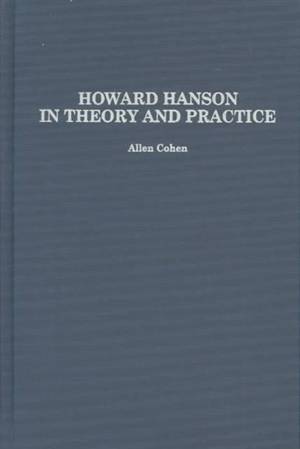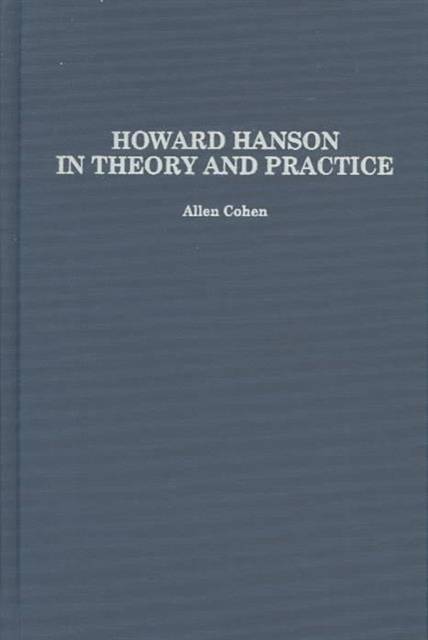
- Retrait gratuit dans votre magasin Club
- 7.000.000 titres dans notre catalogue
- Payer en toute sécurité
- Toujours un magasin près de chez vous
- Retrait gratuit dans votre magasin Club
- 7.000.0000 titres dans notre catalogue
- Payer en toute sécurité
- Toujours un magasin près de chez vous
Description
In this exciting new study of a largely overlooked but nevertheless extremely important figure in American music, author Allen Cohen explores the relationship between theory and practice in the works of Howard Hanson, a prominent twentieth-century composer, conductor, and educator. In Hanson's book Harmonic Materials of Modern Music, he proffered a theory of classification of all possible pitch-class collections in the chromatic scale, showing ways of deriving larger collections from smaller ones, and demonstrating significant relationships among them. This theory anticipated in many ways the standard formulations of music set theory, while also influencing Hanson's own compositions.
Following an introduction and biographical overview, Howard Hanson: Theory and Practice summarizes its subject's theoretical writings, examines their usefulness for both musicologists and composers, and analyzes in particular two of Hanson's musical pieces. In this way, Howard Hanson represents an exciting and highly educational look at a man and his work, both unacknowledged for too long.Spécifications
Parties prenantes
- Auteur(s) :
- Editeur:
Contenu
- Nombre de pages :
- 304
- Langue:
- Anglais
- Collection :
- Tome:
- n° 66
Caractéristiques
- EAN:
- 9780313321351
- Date de parution :
- 30-12-03
- Format:
- Livre relié
- Format numérique:
- Genaaid
- Dimensions :
- 163 mm x 243 mm
- Poids :
- 467 g

Les avis
Nous publions uniquement les avis qui respectent les conditions requises. Consultez nos conditions pour les avis.






